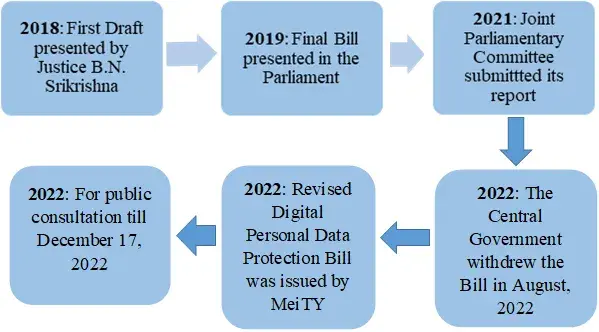New Endorsement Guidelines for Social Media Influencers- India

By Rupin Chopra and Vidhi Oberoi
Introduction
Advertisements today are no longer limited to traditional media like print, television, or radio. With the increasing reach of digital platforms such as Facebook, Instagram, and Twitter, there has been a rise in the influence of virtual influencers in addition to celebrities and social media influencers. This probably has led to an increased risk of consumers being misled by advertisements and unfair trade practices by these influencers.
Existing Regulations on Advertisements
It cannot be said that the concern has been unanswered so far, there already exist certain regulations that attempt to regulate and govern misleading and deceptive advertisements by celebrities and influencers which include:
- The Consumer Protection Act, of 2019 which was enacted to protect consumers from unfair trade practices and deceptive advertisements and endorsements by celebrities that also include social media influencers. If an influencer has not informed that it is a paid promotion and intentionally lying about the product that it is good when it is not, followers can sue the influencer for misleading advertising for upto INR 10 lakh and repeat offender up to INR 50 lakh.[1]
- Guidelines for Advertisements and Endorsements for Misleading Advertisements, 2022- These guidelines were issued by the Central Consumer Protection Authority (CCPA) on June 9, 2022 to protect consumers from claims and promises from advertisements that are misleading and baseless.
- The Guidelines are in alignment with the guidelines set by the Consumer Protection Act, 2019 that were enacted to protect consumers from unfair trade practices and deceptive advertising. These Guidelines named ‘Guidelines for prevention of Misleading Advertisements and Endorsements for Misleading Advertisements, 2022 published on June 9, 2022. These Guidelines of June 9, 2022 outline the criteria for valid advertisements and the responsibilities of manufacturers, sellers, advertisers and also touch upon the celebrities and endorsers. Furthermore, failure to disclose any material connection or non-compliance of the Consumer Protection Act 2019 and Rules made thereunder would attract penalty upto Fifty (50) Lakhs.
- The Code for Self-regulation of Advertising – The Advertising Council of India (ASCI) has established the Code for Self-regulation, with a view to achieve the acceptance of fair advertising practices in the best interest of the consumers. The Code includes a series of rules and regulations that help maintain the authenticity of the advertisement content.[2]
The Department of Consumer Affairs under the Ministry of consumer Affairs, Food and Public Distribution released a guideline named, ‘Endorsement Know-hows!’ (hereinafter referred to as the “Guidelines”) for celebrities, influencers and virtual influencers on social media platforms on January 20, 2023 with the aim to ensure that the celebrities and influencers do not mislead their audiences when endorsing products or services and the endorsements are in compliance with the Consumer Protection Act and associated rules.
Endorsement Know-hows!
The Guidelines require that the celebrities, influencers and virtual influencers (fictional computer generated characters having features and personalities of humans) who have access to audience and the power to affect their purchasing decisions and opinions shall display disclosures about the ‘material connection’ between the advertiser and celebrity/influencer that is likely to affect the weight or credibility of the endorsements made by them.[3]
What is Material Connection?
Material connect could possibly include, but is not limited to, benefits and incentives, such as:[4]
- Monetary or other compensation;
- Free products with or without any conditions attached including those received unsolicited, discounts, gifts;
- Contest and sweepstakes entries;
- Trips or hotel stays;
- Media barters;
- Coverage and awards;
- Any family, personal or employment relationship
Further, the Guidelines specify that the disclosures shall be prominently and clearly displayed in the endorsement, making declarations hard to miss and should not be mixed with a group of hashtags or links.
Additionally, the Guidelines further require the disclosures to be made with respect to the manner and form of advertisement, such as:
- The endorsement in a picture – disclosures should be superimposed over the image enough for audience to notice;
- The endorsement in a video – disclosures to be placed in the video and not just in the description and moreover, should be made in both audio and video format;
- The endorsement in a live stream – disclosures should be displayed continuously and prominently during the entire stream.
The Guidelines are in alignment with the guidelines set by the Consumer Protection Act, 2019 that were enacted to protect consumers from unfair trade practices and deceptive advertising. These Guidelines named ‘Guidelines for prevention of Misleading Advertisements and Endorsements for Misleading Advertisements, 2022.
Due Diligence
The Guidelines entail that the endorsements made must be in simple, clear language and terms such as ‘advertisement’, ‘sponsored’, or ‘ paid promotion’ can be used. The Guidelines further, advise the Celebrities/Influencers to do proper due diligence and satisfy themselves that the advertiser is in a position to substantiate the claims made in the advertisement and also ensure that the product or service is actually used or experienced by the endorser.
Recently, a body of nutrition experts from the National Advocacy in Public Interest (NAPI) have written to Amitabh Bachchan against his endorsement of biscuit brand as ‘deceptive’ and ‘misleading’.[5] The representation cited that the said advertisement for the biscuit brand misleads consumers by equating and unhealthy, pre-packaged food product with real foods like ‘atta roti and a glass of milk.’ It was also noted that the product contains high sugar and fat ingredients and increased consumption of these biscuits may contribute to obesity in children.[6]This incident aptly brings out the role of due diligence while endorsing products to consumers particularly when such products are equated with home-cooked food and target audience being children.
Conclusion
Social Media sites/apps have emerged as a strong marketing and advertising platform owing to the popularity and wide variety of content available thereby giving new dimensions to digital marketing. This though has contributed to the creation of economic benefits for content creators but also poses risk of increasing misleading advertisements since customers often tend to get influenced by the products and services endorsed by celebrities and influencers. This, thus, necessitates mandatory compliance with the Guidelines for certain disclosures to be made while endorsing any product or service so as to ensure transparency in best interest of consumers and any non-compliance would attract penalties set in accordance with the Consumer Protection Act, 2019.
Rachita Thakur, Junior Associate at S.S. Rana & Co. has assisted in the research of this article.
[1] https://ssrana.in/articles/social-media-influencers-advertisement/
[2] https://ssrana.in/articles/influencer-marketing-india/
[3] https://www.pib.gov.in/PressReleasePage.aspx?PRID=1892527
[4] https://consumeraffairs.nic.in/sites/default/files/filefield_paths/Endorsement_Know-Hows.pdf
[5] https://thewire.in/food/nutrition-experts-write-to-amitabh-bachchan-over-misleading-promotion-of-biscuit
[6] https://www.newindianexpress.com/entertainment/hindi/2023/jan/04/amitabh-bachchans-biscuit-promotion-annoys-health-experts-2534706.html
Public Notices for Patent Hearings- India

By Johny Solomon Raj and Swaraj Singh Raghuwanshi
The Office of Controller General of Patents, Design and Trademarks (CGPDTM) issued three public notices on January 16, 2023, which is in supersession of the previous public notices issued on December 26, 2022[1]. The notices issued by the CGPDTM are regarding the timelines and compliances for patent hearing.
Person authorized to attend hearings[2]
As per Section 128 and Section 132 of The Patents Act, 1970, only authorized patent agents and advocates are entitled to represent their clients in hearing/proceeding in respective matters before the Controller of Patents.
The Office of Controller General of Patents, Design and Trademarks (CGPDTM) reiterated the concern issued in the previous notice issued on December 26, 2022, wherein the CGPDTM raised a concern that person who are neither a patent agent nor authorized by the applicant or any concerned party are attending hearing and making communications before the Controller of Patents.
The CGPDTM notified that in such a scenario, an appropriate action will be initiated as per the provision of the Section 123 of the Patents Act (which prescribes pecuniary punishment) against the concerned person taking part in proceedings before the Controller of Patents and making communications with the Controller.
Hearing compliance for advocates who are not patent agents
The CGPDTM in its previous public notice issued on December 26, 2022. notified that an advocate, not being a patent agent, can take part in the hearing/proceeding before the Controller provided that he is duly authorized by the applicant or the party concerned by filing Form 26 and ensuring that he is accompanied with the applicant or the concerned party.
However, the CGPDTM clarified in its recent public notice (issued on January 16, 2023) that an advocate, not being a patent agent, can take part in the hearings/proceeding before the Controller provided that he is duly authorized by the applicant or the party concerned by filing Form 26 in his favour, without been mandatorily accompanied with the applicant or the concerned party.
Adjournment of Hearing:[3]
The CGPDTM in its previous public notice notified that it was observed by the Patent Office that the applicants are not complying with the Rule 129A of The Patents Rules, 2003 (as amended) and requesting adjournments without mentioning the “reasonable cause”. The office further notified that the request for adjournment filed without mentioning “reasonable cause” shall not be entertained and requested the stakeholders to specify the “reasonable cause” along with documentary evidence (if any) in the request for adjournment.
However, the CGPDTM clarified in its recent public notice that it is not mandatory to file documentary evidence (if any) in the request for adjournment. Though, applicants are still required comply with the Rule 129A of The Patents Rules, 2003 (as amended) and shall mention the “reasonable cause” while requesting for the adjournments, and no such adjournments shall be entertained unless a “reasonable cause” is specified in the adjournment”.
Pre/Post Grant Opposition Hearings in Patents:[4]
The CGPDTM in its previous public notice informed that due to high number of pending patent applications awaiting disposal, an exercise of providing a time period of four week for the hearing from the date on which the hearing intimation/notice is issued and a practice of providing a time period of ten days from the date of issuance of the hearing intimation/notice as prescribed in Rule 129 will be followed by the Controller of Patents.
However, the recently issued public notice in supersession of the preceding public notice dated 26th December, 2022 stressed on the long pending matters with the IPO, wherein a bulk of patent applications with/without pre-grant opposition or post-grant opposition are pending for final disposal. The notice further elucidated on the time period for adjournment of hearings by re-iterating Rule 129 and 129A of the Patent Rules, 2003, wherein Rule 129 reads that “before exercising any discretionary power under the Act or these rules which is likely to affect an applicant for a patent or a party to a proceeding adversely, the Controller shall give such applicant or party, a hearing, after giving him or them, ten days notice of such hearing ordinarily”; and Rule 129A reads that “no party shall be given more than two adjournments and each adjournment shall not be for more than thirty days”. Thus, based on the joint reading of the Rule 129 and 129A, it can be concluded that at least ten working days are the inner limit and thirty days are the outer limit in respect of hearings and adjournments.
Furthermore, in order to accelerate the disposal of the aforementioned long pending matters, the CGPDTM decided to streamline the issues relating to hearings and adjournments, considering the huge public interest involved and also the advantages of the patent rights conferred by Chapter VIII of the Patents Act, 1970. The current notice also states that in the matters involving insignificant procedural issues, the patent office will make an effort to provide a shorter time period, while in practical matters related to analysis of prior arts, claim construction etc., a longer time period would be provided in agreement with the Act and Rules.
It is further stated in the said notice that:
(i) a fair opportunity to guard would be provided to the parties in accordance with the principles of natural justice; and
(ii) an opposing action would not be taken exclusively on the basis of the aforementioned public notice.
[1] https://ssrana.in/articles/patent-hearings-cgpdtm-india/
[2] https://ipindia.gov.in/newsdetail.htm?867/
Key Features and Issues in the Digital Personal Data Protection Bill, 2022

By Nihit Nagpal and Apalka Bareja
The Ministry of Electronics and Information Technology (“MeIT”) recently introduced a revised Bill for the protection of digital personal data titled as “The Digital Personal Data Protection Bill, 2022” (hereinafter referred as “2022 Bill”). The 2022 Bill has been introduced by replacing the Personal Data Protection Bill, 2019 (hereinafter referred as “2019 Bill”). The government displayed the Bill on its website for seeking chapter-wise feedback till December 17, 2022. It has been a constant endeavor of the Indian government to setup a regulatory mechanism which strikes a balance between “protection of personal data” and “establishment of a regulatory mechanism” which allows the processing and storing of personal data by fiduciaries. In the recent past, European Union’s Regulation, General Data Protection Regulations have often been referred to as Model law for incorporating a domestic legislation.

The 2022 Bill covers a very narrow spectrum of personal data protection unlike the previous Bills. The 2022 Bill specifically focuses on the digital data which is of personal nature. The Bill succinctly provides for 30 Sections which cover the rights of a data fiduciary, rights and duties of a data principal, establishment of Data Protection Board of India, etc. While the enactment of a legislation on protection on personal data is the need of hour, however, the present 2022 Bill still poses few challenges and issues.
Key features of the 2022 Bill vis-a-vis 2019 Bill and GDPR
The revised 2022 Bill provides for various salient features which were not covered in the previous Bills. A comparative analysis of the 2022 Bill along with 2019 Bill and General Data Protection Regulation[1] has provided herein below:
1. Extent and Applicability
| 2022 Bill | 2019 Bill | GDPR |
| Section 4 provides for the extent and applicability of the Bill only to those personal data which are collected in digital form. It also extends to such data which may be have been collected through offline mode, but have been digitized.
However, the Bill excludes some digital personal data such as: non-automated processed personal data, offline personal data, personal data processed by an individual for personal or domestic work, or personal data which has been in record for 100 years. |
This Bill was wider in its extent and applicability. Section 2 stated that it shall apply to processing of “personal data”. This implies that any personal data which is collected either through online mode or offline mode shall be covered within the ambit of the Bill.
|
Upon perusal of the preamble and various provisions, the GDPR applies to personal data. Such a personal data could be stored in physical or digital form. Therefore, the extent and applicability of GDPR over protection and processing of personal data is wide.
|
2. Reference to an individual
| 2022 Bill | 2019 Bill | GDPR |
| The revised Bill uses the word “her” under various provisions for referring an individual. This is a progressive step, and it should be used refer to all individuals irrespective of their gender.
For instance, Section 6 states: “On or before requesting a Data Principal for her consent, a Data Fiduciary shall give to the Data Principal an itemised notice in clear and plain language containing a description of personal data sought to be collected by the Data Fiduciary and the purpose of processing of such personal data.” |
This Bill followed the previous legislative drafts and used the word “his” under various provisions for referring to an individual. | The expression “natural persons” has been used to refer to an individual. The European Parliament has adopted a neutral approach to address an individual in their legislative framework. This makes the law more inclusive and easily include transgenders as well. |
3. Introduction of ‘Consent Managers’ and their accountability
| 2022 Bill | 2019 Bill | GDPR |
| The revised Bill has introduced that “Consent Manager” shall be accountable towards the Data Principal which shall act on behalf of the Data Principal, and every consent manager shall be registered with the Data Protection Board. The same has been provided under Section 7. | Section 21 of the Bill stated that the Data Principal can exercise their right through Consent Manager, however, no accountability of such manager was created towards the Data Principal. | The GDPR does not specifically provide for consent managers, however, there are controllers and data protection officers who are entrusted with such jobs. The controller is duty bound to demonstrate that data subject has given his consent. |
4. Grounds for processing Personal Data without consent
| 2022 Bill | 2019 Bill | GDPR |
| Section 5 of the Bill states that the grounds for processing personal data would be only for lawful purpose for which the Data Principal has given consent, in accordance with the provisions of the Act and Rules made thereunder.
The revised Bill does not provide for a comprehensive list of grounds under which a Data Principal can collect digital personal data without the consent of the Data Fiduciary. |
Chapter III provided for processing of personal data without consent. Section 12 to 15 provided for the list pertaining to situations where the Data Fiduciary can collect data without the consent of Data Principal.
A data fiduciary could collect personal data without the consent of Data Principal in cases where it is required for the function of the State authorized by law, for compliance of an order of a Court or Tribunal, to undertake any measure for providing medical treatment, etc. |
Article 7 makes it obligatory for the controller to process only that data which is based on consent and the controller shall be able to demonstrate the same. Further, the GDPR allows the collection personal data without consent only if collection is required for public interest in the areas of public health. Such a collection shall be subject to suitable and specific measures so as to protect the rights and freedoms of natural persons. |
5. Obligations of Data Fiduciary
| 2022 Bill | 2019 Bill | GDPR |
| Chapter 5 provides for the role of Data Fiduciary. The Central government shall guarantee notification of any data fiduciary or class as Significant Data Fiduciary (SDF) on the basis of various factors such as risk involved, volume of sensitivity and other related elements.
Further, the Data Fiduciary shall be responsible for compliance of the provisions of this Bill, specifically in matters concerning the technical and organizational aspects.
|
Chapter II provided for obligations of Data Fiduciary. Section 10 provided for the accountability of data fiduciary. However, no classification existed between Data Fiduciary and a Significant Data Fiduciary (SDF). | The GDPR provides for Controllers which is akin to Data Fiduciary as provided in the Indian legislative framework. Article 24 of the GDPR creates an obligation on the Controller to take all measures as provided in the GDPR and should be able to demonstrate that processing is being done in such a manner that it does not risk the freedoms and rights of natural persons. |
6. Liability in case of Breach
| 2022 Bill | 2019 Bill | GDPR |
| Section 25 read with Schedule 1 provides for the financial liability up to Rupees Five Crores, if any person fails to comply with the Act or commits a breach of data.
However, the Bill does not provide for any cognizable offence. The following are the liabilities for non-compliance: 1. For Failure of Data Processor or Data Fiduciary to take reasonable security safeguards to prevent personal data breach under sub-section (4) of section 9 of this Act- penalty upto INR 250 Crores can be imposed. 2. Failure to notify the Board and affected Data Principals in the event of a personal data breach, under sub-section (5) of section 9 of this Act- penalty upto INR 200 Crores. 3. Non-fulfilment of additional obligations in relation to Children; under section 10 of this Act – penalty upto INR 200 Crores. 4. Non-fulfilment of additional obligations of Significant Data Fiduciary; under section 11 of this Act – penalty up to INR 150 Crores. 5. Non-compliance with section 16 of this Act- Penalty up to INR 10,000/- 6. Non-compliance with provisions of this Act other than those listed in (1) to (5) and any Rule made thereunder- Penalty up to INR 50 Crores. |
Section 82 provided for imprisonment up to three years or with fine. The offence provided under Section 82 was a cognizable and non-bailable offence.
|
Chapter 8 provides for Remedies, Liabilities and Penalties. The GDPR does not specifically provide for the quantum of fine or punishment. However, as per Article 84, the GDPR gives discretion and power to Member States to lay down the rules on penalties applicable to infringement of this Regulation. Further, such penalties must be proportionate, effective and dissuasive. |
Key Lapses in the 2022 Bill
Narrow applicability of the Bill: As the name of the Bill suggests, the Bill focuses specifically on the digital data of a personal nature. The Bill defines the expression “personal data” under S. 2(13), however, it does not define what constitute a “digital data”. Since, the Bill specifically focuses on digital personal data, it appears that the legislature intended to exclude the applicability of this Bill on personal data stored in a form other than digital. The implication of such exclusion would be that if a breach of personal data which was not stored in a digital form, takes place then no protection could be sought under the 2022 Bill. The title of the Bill and its provisions also leave no scope of interpretation for the Courts to extend the protection to personal data stored in physical form. Further, a cursory perusal of General Data Protection Guidelines (hereinafter referred to as “GDPR”)[2] would entail that GDPR extends to all forms of “personal data”, be it digital or otherwise.
No obligation on data fiduciary for preparing a privacy policy design: Chapter 2 of the 2022 Bill provides for Obligations of a Data Fiduciary. Unlike the 2019 Bill, the new 2022 Bill does not require a data fiduciary to prepare a privacy policy throughout the processing from the point of collection of data to deletion of data. An obligation on data fiduciary for the protection of privacy by design policy has been omitted in the 2022 Bill. This obligation is enshrined under Article 25 of GDPR[3].
No offence, only penalty provided: Section 25 of the 2022 Bill provides for a hefty financial penalty which may extend to Rupees five hundred crores. First Schedule of the Bill provides for penalty. However, the 2022 Bill does not provide for any offence unlike the previous Bill. The 2019 Bill, under Section 82 provided for a punishment with imprisonment for a term not exceeding three years or fine which may extend to Rupees Two Lakhs. The legislature has tried to create a deterrence by imposing hefty penalties in crores. However, in case a data fiduciary commits a grave breach but does not hold enough assets which could match the penalty imposed in a given case, then the proceedings would become futile. On the other hand, if imprisonment remains as a primary mode of punishment, then it is likely to create more deterrence in addition to a civil liability.
Hefty penalties likely to deter startups in India: India is now witnessing huge number of startups, and the government policies are also aligned to support startup culture. The revised Bill requires the Data Fiduciary to acquire proper means and process and secure the digital personal data of the Data Principal. However, it is not possible for every startups to put in place all the mechanisms and tools for complying the provisions of the Bill. Further, if any data fiduciary fails to comply with the provisions of the Bill, they shall be subjected to hefty liability extending in crores. This will ultimately impede the growth of startups in India. The penalties should be just, reasonable and proportionate to the quantum of injury caused to the aggrieved. Both civil and criminal liability should be included in the Bill and discretion can be given to the Board or the concerned authority to decide whether fine has to be imposed or criminal liability has to be imputed. The same can be done by including the word “or” in the penal provisions of the Bill and include both civil and criminal liability in a proportionate manner. This will ultimately allow the concerned authority to decide each case on its merits in just, fair and reasonable manner.
Regulatory approval for cross-border flow of digital personal data: In a globalized world, where data collection has become an inalienable part of daily transaction, there is a likelihood of cross-border flow of data outside India. The 2022 Bill is entirely silent on a comprehensive regulatory mechanism for the cross-border flow of digital personal data. In the 2019 Bill, the Data Protection Authority was empowered to monitor the cross-border transfer of data[4] and an obligation was also cast on the data fiduciary to disclose the same[5]. However, the 2022 Bill does not provide for the same and also takes away the powers of Data Protection Board to issue directions for such compliance. In this case, in order to allow proper flow of data outside India, then the same may be regulated with proper guidelines in the Bill itself. Thereafter, if the Bill is passed with these changes, then India’s international obligations would also be fulfilled.
Application of the right to information for a confidential data: Section 12(3) states that the Data Principal shall have the right to obtain from Data Fiduciary about the identities of all Data Fiduciaries with whom the personal data has been shared. However, there may be various cases where the Data Principal may have entered into a non-disclosure agreement with the Data Fiduciary preventing the disclosure of any digital personal data under the right to information. This anomaly should be removed by making the provision more comprehensive and clear.
The right to be forgotten: The Right to be forgotten is an offshoot of the right to privacy which means erasure or deletion of data once the data has become redundant or detrimental to the data principal. Justice Kaul’s opinion in the landmark KS Puttaswamy and Anr. v. Union of India and Ors.[6] reflects a small discussion on the right to be forgotten in the 2019 Bill and GDPR. In a landmark case of Google v. Spain[7], the right to be forgotten is considered as a part and parcel of right to privacy. In India, the right to be forgotten is yet to get a status of fundamental right under Article 21 by the Supreme Court.
The right to be forgotten shall have a significant application in cases where the name of the victims of sexual offences are disclosed. The Supreme Court in Birbal Kumar Nishad v. The State of Chattisgarh[8], ordered that the name of the victims of sexual offences should not be mentioned in proceedings before courts. Further, in Bhupinder Sharma v. State of Himachal Pradesh[9], the Supreme Court held that disclosing the names of victims of sexual offences amounts to an offence under Section 228A of the Indian Penal Code, 1860. Therefore, in view of these decisions, a victim of sexual offence can seek the erasure or removal of her name, if the same has been disclosed in public domain. The 2022 Bill enshrines the right to be forgotten under Section 13 which shall be subject to reasonable restrictions, and such cases can be properly dealt if the Bill is enacted to this effect.
The problem with Section 13 is that it uses the expression “in accordance with the applicable laws and in such manner as may be prescribed” which is too wide to be considered as a reasonable restriction on a legal right. The latter part of the expression makes the restriction vague and superfluous. In contrast to the Article 17 of GDPR, the 2022 Bill does not cover specific grounds of erasure of data. As per the 2022 Bill, cases where the data principal withdraws the consent cannot be taken as a ground for exercising the right to be forgotten, rather the implication would be that it shall not affect the lawfulness of processing of personal data and the fiduciary shall cease the processing of the personal data. However, the GDPR provides for withdrawal of consent as a ground for invoking the right to be forgotten where there is no other legal ground for processing the data.[10]
Apart from the right of correction or erasure, a duty should be caste upon the Data Principal to intimate or update the Data Fiduciary if there has been a change in personal data. The purpose behind this is that a Data Fiduciary would not have any notice of the change in personal data on its own unless the same is intimated by the Data Fiduciary.
Conclusion
While the enactment of a legislation for data protection still remains to be a pending affair, the 2022 Bill is a welcome step. However, government’s obligations towards protection of personal data would still remain partially unfulfilled. The above-mentioned lapses may be incorporated in the Bill. The GDPR guidelines would still act as a model law to cover various other crevices in the existing 2022 Bill. The High Courts in various states have shown sensitivity towards the protection of personal data of individuals and as such have even applied the right to be forgotten in few cases. As a way forward, the penalties of civil nature should be balanced with criminal liability in order to balance “the protection of personal data” and “processing of personal data”. If the penalties are made proportionate, it will instill confidence in the new startups.
Mohd. Yasin, Intern at S.S. Rana & Co. has assisted in the research of this article.
[1] EU General Data Protection Regulation (GDPR): Regulation (EU) 2016/679 of the European Parliament and of the Council of 27 April 2016
[2] EU General Data Protection Regulation (GDPR): Regulation (EU) 2016/679 of the European Parliament and of the Council of 27 April 2016, Article 25.
[3] EU General Data Protection Regulation (GDPR): Regulation (EU) 2016/679 of the European Parliament and of the Council of 27 April 2016, Article 25.
[4] Personal Data Protection Bill, 2019, Section 49(2)(g)
[5] Personal Data Protection Bill, 2019, Section 23(1)(g)
[6] KS Puttaswamy and Anr. v. Union of India and Ors., (2017) 10 SCC 1.
[7] Google Spain SL v Agencia Española de Protección de Datos C-131/12
[8] Birbal Kumar Nishad v. The State of Chattisgarh, SLP (Criminal) No. 7772/2021.
[9] Bhupinder Sharma v. State of Himachal Pradesh, (2003) 8 SCC 551.
[10] EU General Data Protection Regulation (GDPR): Regulation (EU) 2016/679 of the European Parliament and of the Council of 27 April 2016, Article 17(1)(b).
New EV Battery Rules for Enhanced Safety and Performance- India

By Apalka Bareja and Vidhi Oberoi
The significant increase in global warming has led to the innovation and use of environmentally friendly technology. The newfound activism has led to change in the Automotive Industry, which is the third largest greenhouse gas emitter[5]. Electric Vehicles (EVs) are at the forefront of the shift. India has committed to having 30% of private automobiles as EVs by 2030 at the COP26 Summit i.e., Conference of the Parties 26[6]. It is estimated that the EV market will reach 10 million annual sales by 2030[7].
Recently, it has been suggested by news outlet[8] that the Government of India (GOI) via the Bureau of Indian Standards (BIS) will bring the EV Battery and Performance Standards Rules. This is a significant effort towards bringing in safety norms to prevent fires. This is done to make batteries safe and reliable. These rules will prescribe standards to avoid substandard batteries which might result in fires. These rules might have a monumental effect on the EV Industry as it will regulate the batteries manufacturing in India.
New Rules for EV batteries
Accordingly, the news outlet reported[9] that Senior Government Officials have anonymously indicated that GOI would bring rules for battery Safety and performance standards next month. The officials have also commented that these rules will likely not limit the dimensions and size of EV batteries as it will create a blockade to the innovation.
The news brings relief to the EV industry and will welcome the move. Accordingly, the government indicated to bring uniformity in size and dimensions of the batteries but later retracted. This decision was made after the industry leaders met with officials from NITI AYOG on January 3, 2023 and expressed concerns against the government suggestions to unify the battery size in EV battery swapping policy. They reasoned that standardizing the dimensions will bring a halt in EV innovations. But the officials have indicated that these rules will suggest a certain minimum standard that shall be termed “horizontal standards” to ensure safety. We will have to wait for the rules for further comments on the said subject.
Current Regulatory Standards Associated with Vehicle Battery Safety
- AIS 048 (2009) Battery Safety– This standard covers Traction Battery Safety requirements for L, M & N category vehicles (Including E-Rickshaw/ E-Cart). It covers the Electrical Abuse Test of cells. It includes two types of tests (Short Circuit Test and Over-charge test).
- AIS 038 Rev 2 (2020) M&N Category– The tests are for M and N Category Vehicles. This standard takes a system-level safety approach in which battery and the vehicle is taken as a single unit. It include additional safety requirements related battery cells, BMS, on-board charger, design of battery pack, thermal propagation due for internal cell short circuit leading to fire etc.
- Electric Vehicle Battery Swap System- A battery swapping station lets an EV to interchange a discharged battery container for a charged one as a substitute to plugging the automobile into a charging station. Battery swapping de-links the vehicle and fuel (in this case, the battery) and thereby leads to a reduction in the upfront cost of the vehicles.
- Testing Guidelines for EV for MHI Schemes for enhanced human safety- The Indian Union Ministry of Heavy Industries (MHI) has made these tests mandatory for all EV and battery suppliers. The cell-level battery safety tests as per International Standard UL 1642 includes six tests.
Conclusion
Presently, all we can do is speculate about the much awaited rules. The rules will likely regulate the responsibilities of manufacturer, importer, assembler and re-conditioner. Alternatively, the responsibilities of dealers and recyclers might also be mentioned in the rules.
Safety and performance are two critical aspects for India’s international commitment towards EV transformation. The rules will bring a positive reinforcement of trust on EV industry and will emphasize on efforts towards the safety of consumers, reliability and safety of the vehicle.
The new regulation will have a positive effect on the market as it will repair the reputation which was tarnished because of various burning incidents. Thus, the news rules will help in India’s commitment to replace Petro Chemical based motors by the ‘Greener Alternative’.
Piyush Kumar Singh, Intern at S.S. Rana & Co. has assisted in the research of this article.
[5] https://www.theguardian.com/environment/2011/apr/28/industries-sectors-carbon-emissions
[9] Ibid
Related Posts
Battery Waste Management Rules, 2022- Registration and Regulatory Compliances
ELECTRIC VEHICLES- REGISTRATION CERTIFICATE FEES EXEMPTED


